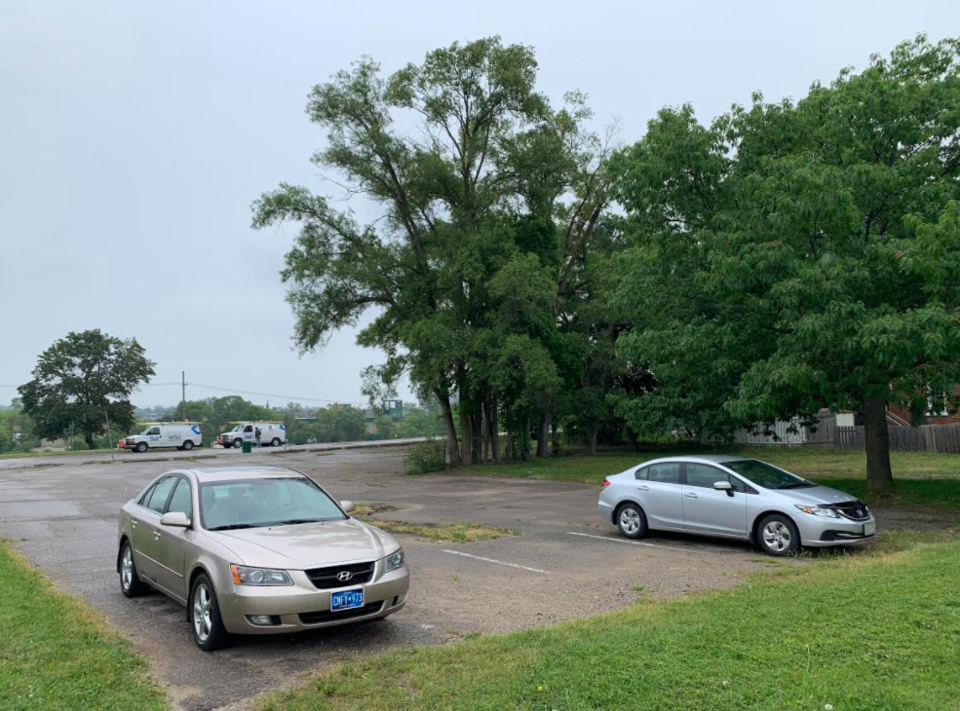A $3-million, supportive housing project using modular homes on Vespra Street, which could help solve homelessness in the city, is now part of Barrie’s 2021 budget.
Early Wednesday morning, councillors gave the plan initial approval. City council will consider final approval at its Jan. 25 meeting.
“It’s an exciting opportunity for us to make a dent in the issue of homelessness in our community,” said Coun. Keenan Aylwin. “The situation with people who are unhoused in and around the downtown has reached a breaking point and people’s lives are at risk, sleeping out in the cold.
“Business owners are having to deal with people sleeping in their doorways and the police are having to deal with that,” he added. “It’s unfortunate that we’re just spinning our wheels, instead of coming to a solution to address the root cause, which is housing. That’s the bottom line, we need more supportive housing and this can accomplish that.”
Mayor Jeff Lehman also supports the initiative.
“The crisis is now, the issue is now, the opportunity with the site is in front of us,” he said. “You can always find reasons not to do stuff, you can always sort of find threads that are loose and pull at them and decide the the whole thing isn’t worth doing.
“This is meeting a need and council is acting to address an issue that is foremost for both our business community and our residents," the mayor added.
These modular housing units would be designed for one person, 450 to 500 square feet in size, stackable and cost about $195,000 each. How many would go on the Vespra Street property, which is city-owned, has not yet been determined.
To be located at the old fire hall property, the development would be funded from debt — with annual servicing costs to be paid from the city’s reinvestment reserve, and the funding to be leveraged to access funding from other levels of government.
The $3 million includes $500,00 for soil remediation of the property, which would take six months. Staff will also issue a call for proposals for a service provider to construct and manage the development.
But there’s nearly as much opposition to the project as there is approval among Barrie councillors.
“It’s rushed and it’s a terrible format in that we’re not even asking for a staff report,” said Deputy Mayor Barry Ward. “I realize the need, but who’s going to own the building? Who’s going to run the building? Who’s going to decide who lives there? What are the rents going to be?
“That’s what bothers me. We’re going to tie $3 million to a specific project with very little detail on what it’s going to involve," he added.
Coun. Mike McCann had similar concerns.
“Why is everything so rushed?” he said. “Is it because there’s real opportunity here, and if we don’t do it tomorrow, we’ve lost this opportunity? That sense of urgency hasn’t been answered yet. What is the risk by waiting until April?”
Coun. Robert Thomson’s motion that only the $500,000 for soil remediation be committed to the project, a call for proposals to construct and manage the project be issued, and that staff report back in April, was defeated by a majority of councillors.
“I like the benefit of the $3 million being transparently on the table to incentivize or at least identify that,” said Coun. Ann-Marie Kungl.
The County of Simcoe, however, is legislated to fund social housing.
“We already give the county almost $5 million a year for social housing,” said Coun. Gary Harvey.
Canada Mortgage and Housing Corporation’s Rapid Funding Initiative, a $1-billion program, is to address vulnerable Canadians’ urgent housing needs, especially during the pandemic — through rapid construction of affordable housing.
The county has indicated Barrie, Orillia and Midland should get some of whatever federal funding it receives for new projects. Two types of Barrie projects are being considered, one being the purchase and conversion of an existing building which could quickly be converted to housing.
If funding for that project is approved, it might make the Vespra Street project unnecessary. The city could have a decision on the Rapid Housing funding in February.
But Aylwin said he doesn’t want to wait.
“There is a desire to see social services and social housing built up before we look at reallocating police funds to those services,” he said of two unsuccessful attempts to defund this year’s Barrie Police Services budget during budget talks.
“We have a city-owned piece of land, close to the downtown that need soil remediation anyway,” Aylwin said. “The costs of carrying debt right now are extremely low.”
Also included in the budget is to have city staff develop a series of scenarios outlining the fiscal impacts of issuing accelerating planned debt and a modest amount of additional debt to take advantage of record low interest rates. Staff would also identify projects in the existing 10-year capital plan/forecast that are to be funded using the tax capital reserve, and that could be accelerated or funded using this strategy.
And staff would identify planned projects, as well as potential new and unfunded projects, that support council’s strategic priorities that could be accelerated using this strategy. This would include economic development and job creation, such as servicing employment land and the west end, affordable housing funding — including projects in the county capital plan or funding Barrie’s community improvement plans, and population health and social issues, focusing on low-cost proactive measures and projects to reduce calls to emergency services, and report back to finance and corporate services committee by April 2021.
City residents face a property tax increase of 0.92 per cent this year, or another $40.45 on a typical house assessed at $367,550, bringing taxes on that property to $4,494.45 this year from $4,454 in 2020.
Adding $3 million in debt for this supportive housing project would have little effect on this year’s tax increase.


